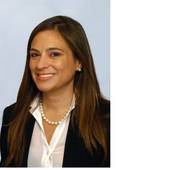How the New Reverse Mortgage Option Can Keep You in Your Home
If you or someone you know is struggling to make ends meet in their golden years, the new reverse mortgage option might provide the right solution.
As a member of the Top 5 in Real Estate Network®, I, along with my team, are committed to providing our clients - and consumers in general - with the latest updates and programs coming out of Washington, such as the FHA's (Federal Housing Administration) new, modified version of its Home Equity Conversion Mortgage (HECM) product, available on or after Oct. 4.
According to FHA, the HECM loan is a reverse mortgage that enables older homeowners to utilize the equity in their homes to cover everything from living expenses to health care costs. The loan allows homeowners to do this while remaining in their home, without having to make the mortgage payments traditionally associated with an equity loan.
FHA's HECM Saver is a second reverse mortgage option for the purpose of lowering upfront loan closing costs. HECM Saver will have an upfront premium of only 0.01% of the property's value. This is ideal for homeowners who want to borrow a smaller amount than generally associated with an HECM Standard loan, where the upfront premium will remain at 2%. According to FHA, under the HECM Saver option, borrowers will receive approximately 10-18% less than they would receive under the HECM Standard option.
In either case, be sure to take into consideration that the mortgage insurance premium (MIP) for both the HECM Saver and HECM Standard will be charged monthly at an annual rate of 1.25% of the outstanding loan balance.
HECM borrowers are offered a variety of options, including:
- Receiving the funds as a lump sum at the time of loan origination
- Establishing a line of credit
- Fixed monthly payments that are disbursed for as long as the homeowner continues to live in the home
Finally, know that even though funds are advanced to the borrower and interest accrues, the outstanding amount does not have to be repaid until the borrower dies, leaves the home or sells the property. At that time, if the balance due on the loan exceeds the value of the home, FHA insurance pays the difference.
If you'd like more information, please e-mail our team or visit www.hud.gov. And please forward this e-mail to family and friends who might also benefit from this information.
Jean Gillin & Le-Ann Vicquery

Comments(0)